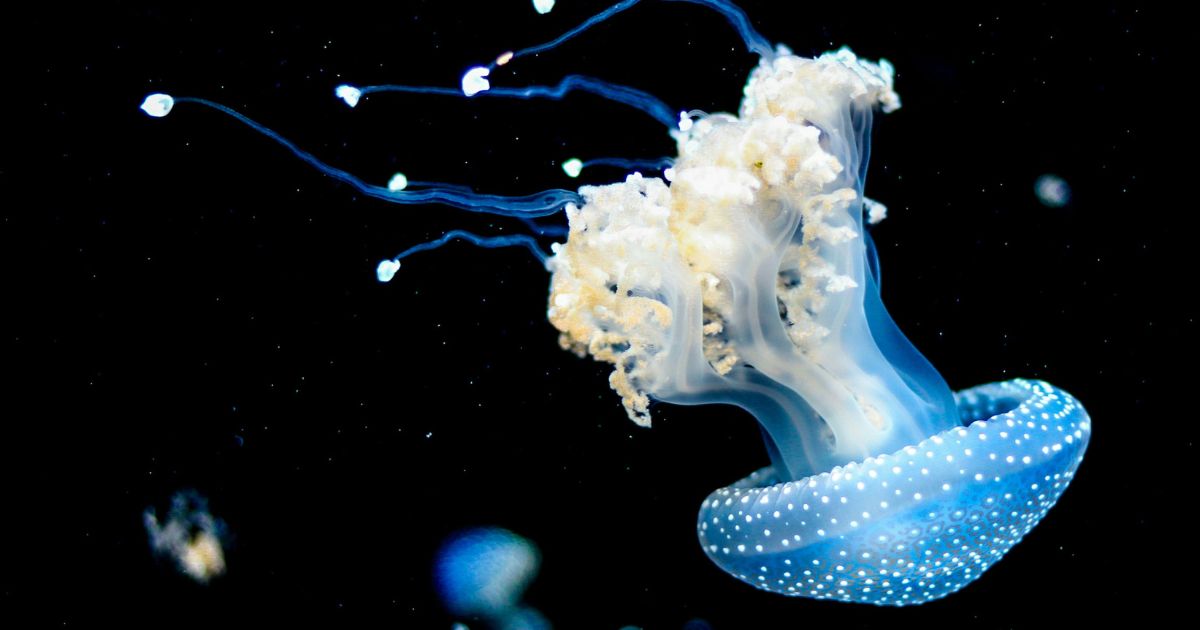MARE involved in the biggest deep-sea scientific expedition in Madeira Island
The "JellyWeb" scientific expedition to Madeira's deep sea begins today, February 9. This international expedition with specialists from different areas of research will leave from the port of Funchal to explore the underwater habitats and biodiversity around the island. It is the fifth expedition of its kind in the last 50 years in the region.
Coordinated by the GEOMAR Helmholtz Centre for Ocean Research Kiel, the expedition has the participation of reference institutions such as the Smithsonian Institution's National Museum of Natural History, the University of Southern Denmark and the University of Hamburg. MARE-Madeira/ARDITI is the only Portuguese partner.
On board the RV Maria S. Merian, 22 researchers will use state-of-the-art instruments and technology , including remote sensing, camera systems, a deep-sea robot, oceanographic sensors and various nets, to shed light on deep-sea biodiversity and food webs. “We will be using echosounders and towed cameras to map three areas around the island of Madeira,” explains co-expedition leader Dr Henk-Jan Hoving, “a deep-sea canyon, an extensive underwater plateau and an underwater ridge, from shallower depths of 50m down to 3000m”. The XOFOS (Ocean Floor Observing System) photo and video system will film and photograph the seafloor for mapping purposes. The deep-sea camera system PELAGIOS (Pelagic in Situ Observation System), equipped with a camera, light sources and sensors to measure environmental data, can be used day and night in open water to document organisms living in their natural environment. Dr. Hoving: “We expect to to find previously undiscovered habitats such as coral gardens or deep-sea reefs, and will then return to these areas for sampling afterwards”.
 "One of the priorities of this expedition is to understand the role of jellyfish in the oceanic food chain. Because they are very fragile and difficult to catch intact, they are an enigma to us," explains João Canning-Clode. Using the instruments on board, the researchers will try to broaden their knowledge of jellyfish and other creatures, while at the same time hoping to discover new species.
"One of the priorities of this expedition is to understand the role of jellyfish in the oceanic food chain. Because they are very fragile and difficult to catch intact, they are an enigma to us," explains João Canning-Clode. Using the instruments on board, the researchers will try to broaden their knowledge of jellyfish and other creatures, while at the same time hoping to discover new species.
Jellyfish are very difficult species to study - because it is a meticulous process, the act of capture is almost always compromised. As a result, little is known about their impact on the ecosystem and the food web. This difficulty is particularly real in the case of deep waters where, apart from jellyfish, there is still much to be explored.
The jelly web was the focus of the EU Horizon 2020 project GoJelly, which developed the idea for the MSM126 expedition. Its results will now be used in the EU Twinning project TWILIGHTED in which GEOMAR and the Norwegian University of Science and Technology (NTNU) will cooperate, coordinated by Joao Canning-Clode of ARDITI Madeira.
How will Portugal benefit from this expedition?
Lasting around a month, this journey is one of five deep-sea expeditions to study Madeira's waters in the last 50 years. In the region, it is also the longest voyage to date and therefore an excellent opportunity to learn more about unique habitats on the seabed and the species that live around the island.
This expedition will also allow Madeira to position itself, fortify international partnerships and invest in developing experiences, attracting investment and creating new opportunities.
Find out more about this expedition in João Canning-Clode and Jan Dierking's interview with RTP Madeira.
